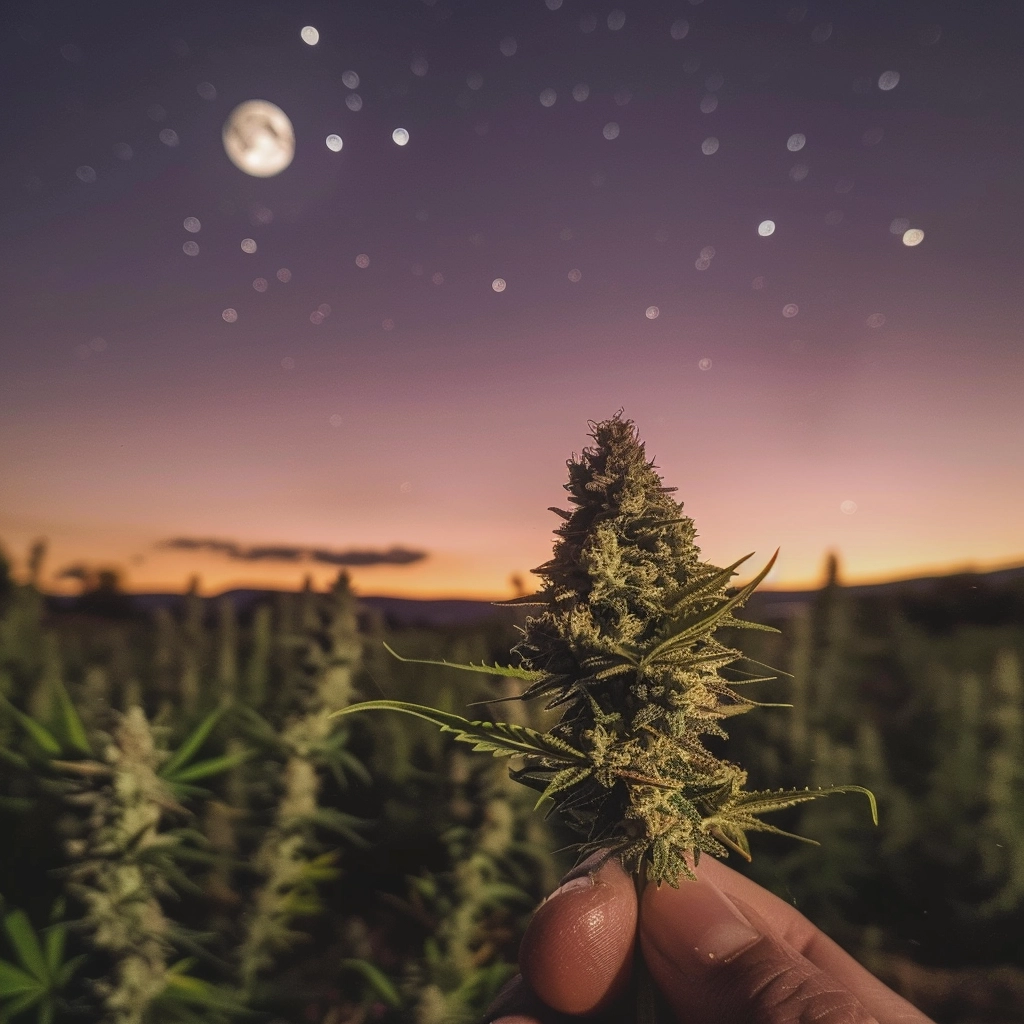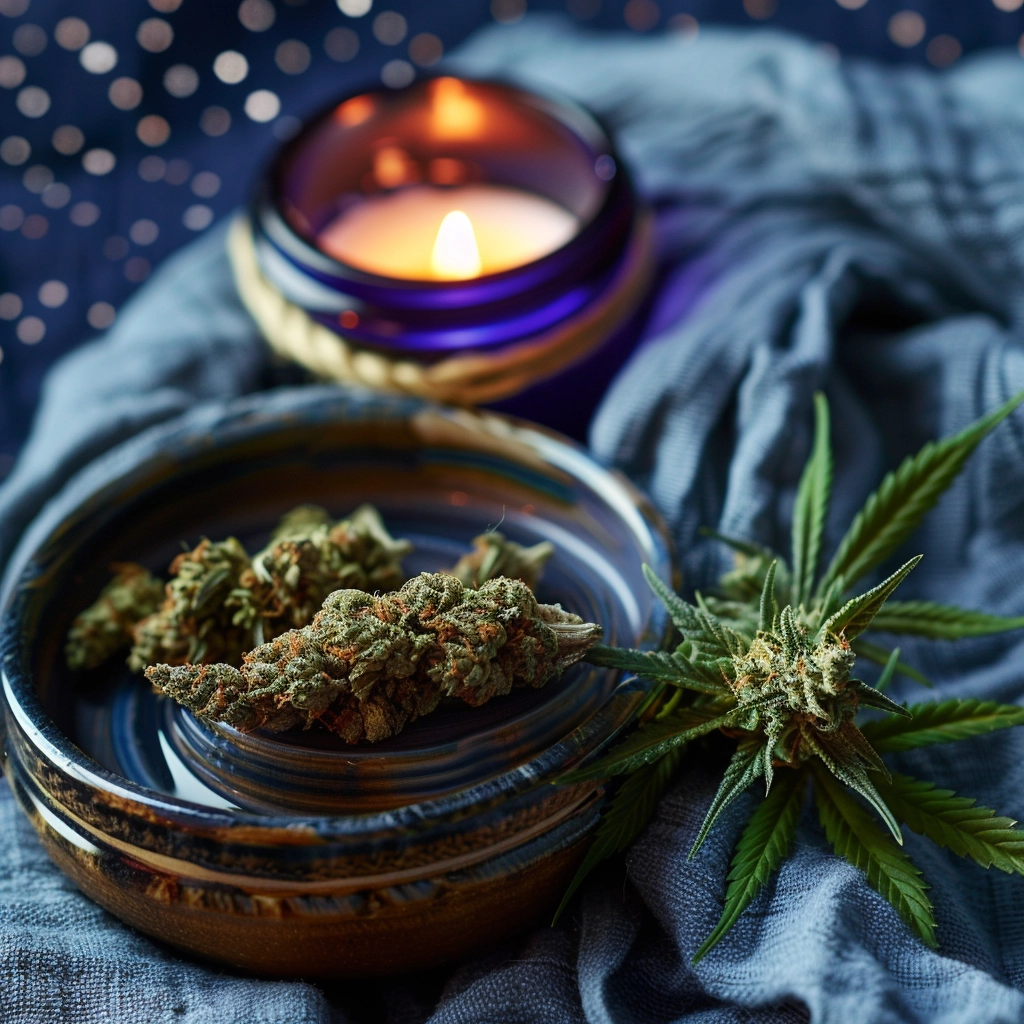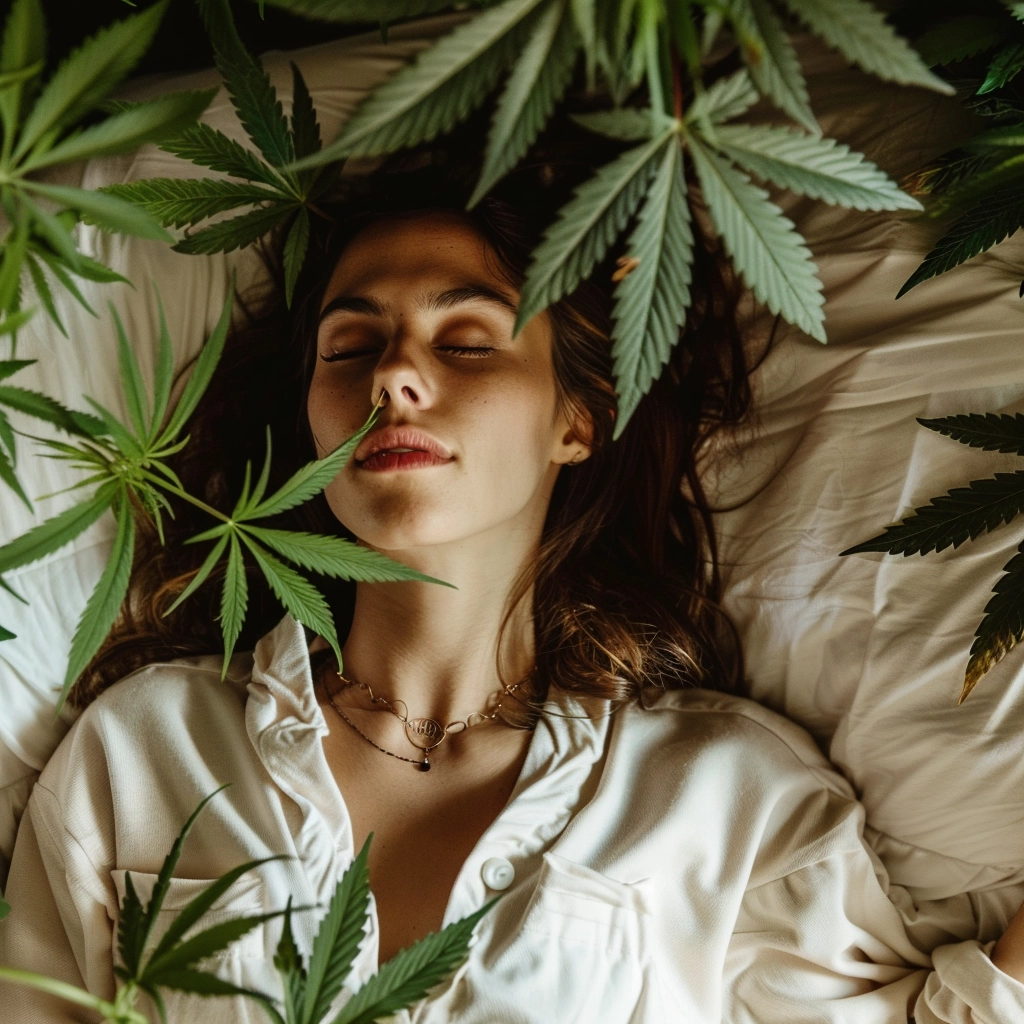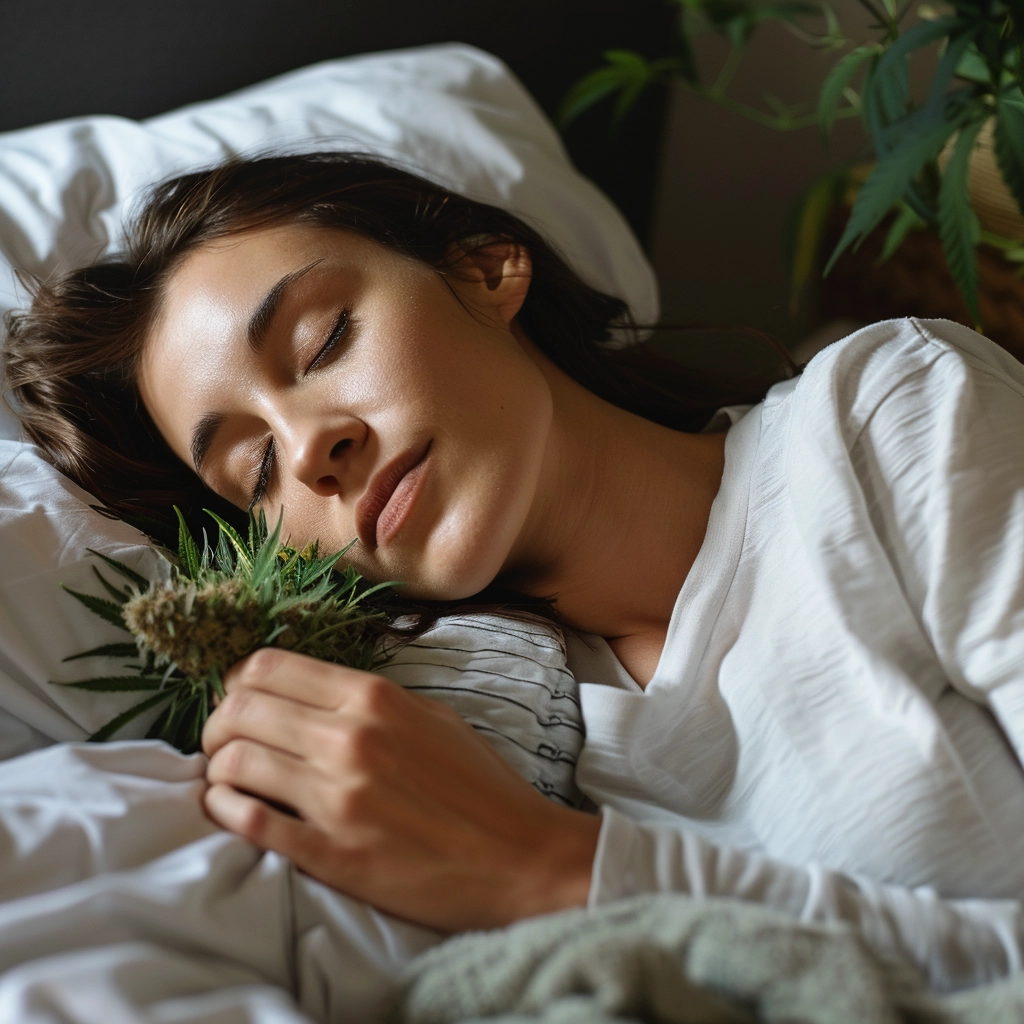In the quiet solitude of the night, millions find themselves battling a silent struggle: sleep disorders. From insomnia’s persistent wakefulness to sleep apnea’s disrupted breathing, sleep disorders undermine health and reduce quality of life. In this landscape of nocturnal challenges, medical cannabis emerges as a promising ally, casting a new light on the path to restorative sleep. This exploration into the medical uses of cannabis for sleep disorders reveals how this ancient remedy is being redefined to help modern society embrace the night.


Table of Contents
ToggleUnderstanding Sleep Disorders: A Modern Epidemic
Sleep is fundamental to health, affecting everything from cognitive function to cardiovascular health. Yet, the Centers for Disease Control and Prevention (CDC) has declared insufficient sleep a public health epidemic, with over 50 million Americans suffering from over 80 different types of sleep disorders. The traditional arsenal against these disorders includes everything from behavioral changes and pharmaceuticals to sleep aids, many with undesirable side effects or limited effectiveness.
The Limitations of Conventional Sleep Medications
While traditional sleep medications are widely used, they often come with a risk of dependency and a host of side effects such as dizziness, daytime drowsiness, and even cognitive impairment. Furthermore, these medications frequently offer only symptomatic relief rather than addressing underlying causes of sleep disturbances.


Cannabis: A Beacon of Hope for the Sleep-Deprived
Cannabis has been used for centuries as a sleep aid, but only recently have scientific investigations begun to understand and legitimize its use in sleep management. The secret lies in its complex chemical makeup, particularly the cannabinoids like THC (tetrahydrocannabinol) and CBD (cannabidiol), which interact with the body’s endocannabinoid system—a key regulator in maintaining body balance, including sleep cycles.
THC and Sleep: Easing the Transition to Dreamland
THC is known for its sedative effects, which can significantly decrease the time it takes to fall asleep. For individuals suffering from sleep latency issues, or difficulty falling asleep, THC can offer a quick transition to sleep. Studies have shown that THC reduces the number of awakenings in the first half of the night, making it a potent ally against disrupted sleep patterns.
CBD: Stabilizing Sleep Architecture
Unlike THC, CBD does not induce a psychoactive high and is known for its anxiety-reducing and neuroprotective properties. CBD can increase overall sleep amounts and improve sleep quality by reducing the frequency of awakenings during the night. For those whose sleep disorders stem from anxiety or pain, CBD offers a dual-action solution: mitigating the underlying condition while promoting easier sleep.


Integrating Cannabis into Sleep Therapy
Incorporating medical cannabis into sleep therapy requires a nuanced understanding of the individual’s specific sleep disorder and the unique properties of different cannabis strains.
Personalized Cannabis Therapy: Finding the Right Strain
Not all cannabis is created equal, especially when it comes to managing sleep disorders. Indica strains are typically favored for their relaxing effects, which can be beneficial for sleep, while sativa strains might be too energizing for nighttime use. The balance of cannabinoids, particularly the ratios of THC to CBD, can also affect efficacy and side effects.
Delivery Methods and Dosing: Tailoring the Cannabis Experience
The method of cannabis consumption—whether inhaled, ingested, or taken sublingually—also plays a critical role in how it affects sleep. Inhalation offers quick onset, making it suitable for those needing immediate relief. Edibles provide longer-lasting effects, which can be beneficial for maintaining sleep throughout the night but require careful timing to avoid delayed onset times.
Challenges and Considerations
Despite its potential, the use of cannabis in sleep therapy is not without challenges. Legal issues, variability in cannabis quality and potency, and a lack of standardized dosing guidelines are significant hurdles. Additionally, the long-term impacts of cannabis use on sleep architecture are still under study.
Looking Ahead: Cannabis and the Future of Sleep Medicine
As research continues to advance, the role of cannabis in treating sleep disorders is poised to expand. With ongoing studies aimed at understanding the optimal strains, dosages, and methods of administration, medical cannabis holds the promise of transforming sleep management. A future where sleep disorders are no longer a night-time nemesis but a treatable condition is on the horizon, with cannabis leading the way in this nocturnal revolution.
In embracing medical cannabis, we are not just finding a new way to combat sleep disorders—we are rediscovering an ancient remedy, refined by modern science, to help society achieve better sleep and, consequently, better health.
FAQ: Medical Cannabis for Sleep Disorders
How does medical cannabis improve sleep?
Medical cannabis interacts with the body’s endocannabinoid system, which plays a critical role in regulating sleep patterns. Cannabinoids like THC and CBD can modify the sleep-wake cycle, reduce sleep onset latency, and improve sleep duration and quality. THC acts as a sedative, helping to decrease the time it takes to fall asleep, while CBD helps to manage issues like pain and anxiety that can interfere with sleep.
Can medical cannabis cure sleep disorders?
While medical cannabis can significantly improve sleep quality and reduce symptoms of sleep disorders, it is not typically considered a cure. It is most effective when used as part of a broader treatment plan that includes lifestyle changes, behavioral therapy, and, when necessary, other medications.
Is medical cannabis safe to use for sleep disorders?
Medical cannabis is generally considered safe for many individuals, but it can have side effects such as dizziness, dry mouth, and in some cases, daytime sleepiness. Long-term use of cannabis, particularly THC-rich products, can also affect sleep quality and potentially lead to dependency. It’s important to use it under the guidance of a healthcare provider.
What are the best strains of cannabis for sleep?
Indica strains are often recommended for sleep due to their sedative effects. Strains high in THC can be effective for shortening the time it takes to fall asleep, while those high in CBD may be better for those whose sleep disturbances are linked to anxiety or pain.
How should cannabis be consumed for sleep?
The best method of consumption may vary depending on the individual’s needs and preferences. Inhaling cannabis via smoking or vaporizing provides quick effects, making it suitable for those who need immediate relief. Edibles have a delayed onset but offer longer-lasting effects, which may help maintain sleep throughout the night.
What is the best time to use cannabis for sleep?
Timing depends on the method of consumption. If smoking or vaporizing, using cannabis 30 minutes to an hour before bedtime can help facilitate sleep. If using edibles, it’s important to account for a longer onset time by consuming them 1 to 2 hours before bedtime.
Can anyone with a sleep disorder use medical cannabis?
Not everyone is a suitable candidate for medical cannabis. Individuals with a history of psychosis or severe heart conditions, for example, should avoid cannabis. It’s important to consult with a healthcare provider to determine if medical cannabis is appropriate for your specific situation, considering your overall health, the nature of your sleep disorder, and your treatment history.
Are there any legal concerns with using medical cannabis for sleep disorders?
The legality of medical cannabis varies by location. In some areas, it is legal for medical use if you have a prescription or medical cannabis card. However, it remains illegal in many parts of the world. Always check local laws and regulations regarding medical cannabis use.
These FAQs are designed to provide a basic understanding of how medical cannabis can be used to manage sleep disorders, highlighting the importance of careful consideration and professional guidance in its use.
Kannabu's Online Cannabis Educational Resources
Read Educational Online Guides and Articles to Learn About Cannabis
- Navigating the Green Path: CBD vs. THC in Medical Treatment
- The Aromatic Architects of Healing: The Role of Terpenes in Medical Cannabis
- Navigating the Green Frontier: Clinical Trials on Cannabis and Its Effects
- Charting the Green Path: Cannabis Dosing Guidelines for Medical Use
- The Endocannabinoid System: Nature’s Balancing Act in Human Health
- A Green Horizon: Cannabis as an Alternative to Opioids
- Navigating the Mind’s Garden: Cannabis and Mental Health Treatment
- Unlocking the Green Code: Exploring the Genetic Diversity and Pharmacological Promise of Cannabis
- Weaving Green into Gold: The Integration of Medical Cannabis into Traditional Medicine
- The Therapeutic Promise of Medical Cannabis: Exploring the Spectrum of Cannabinoids
- From Young to Old: The Compassionate Embrace of Medical Cannabis in Pediatric and Geriatric Care
- Green vs. Traditional: Navigating the Crossroads of Medical Cannabis and Conventional Therapies
- Beyond the Pain: The Comparative Effectiveness of Cannabis in Chronic Pain Management
- Unlocking Cannabis’s Secrets: The Journey Through Cannabinoid Pharmacokinetics and Pharmacodynamics
- Green Paws: Navigating the Frontier of Medical Cannabis in Veterinary Care
- Unlocking Relief: The Transformative Role of Medical Cannabis in Pain Management
- Harnessing Harmony: Medical Cannabis and the Battle Against Autoimmune Disorders
- Embracing the Night: How Medical Cannabis Transforms Sleep Management
- Turning the Tide: Cannabis as a Catalyst for Relief and Recovery in Nausea and Appetite Stimulation
- Illuminating the Neural Pathways: The Transformative Role of Medical Cannabis in Neurological Conditions
- Harnessing Harmony: Medical Cannabis and the Battle Against Autoimmune Disorders
- A Clearer View: Medical Cannabis in the Treatment of Glaucoma
- Breaking Boundaries: Cannabis and the New Frontier in Epilepsy and Seizure Control
- Revolutionizing Relief: Medical Cannabis in Cancer Symptom Management
- Navigating the Storm: Cannabis as a Beacon of Hope in Multiple Sclerosis Treatment
- Cannabis: A Natural Respite for Arthritis and Joint Pain
- Healing from Within: The Role of Medical Cannabis in Treating Gastrointestinal Disorders
- Healing Invisible Wounds: Cannabis in PTSD and Trauma Treatment
- Balancing the Mind: The Potential of Medical Cannabis in Bipolar Disorder and Mood Stabilization
- Illuminating the Mind: Cannabis in the Treatment of Alzheimer’s and Neurodegenerative Diseases

